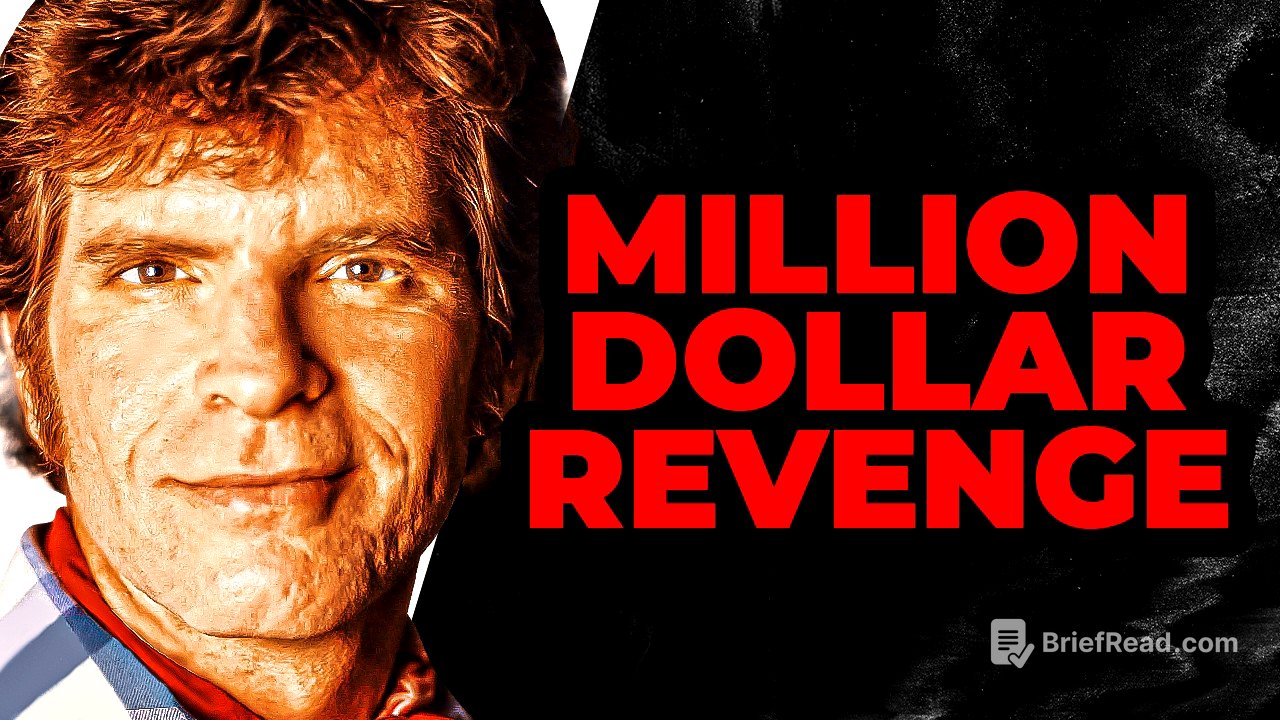TLDR;
John Fogerty, the lead singer of Creedence Clearwater Revival (CCR), faced a long and arduous battle against the music industry after signing a lopsided contract with Fantasy Records in 1968. This contract gave Fantasy ownership of CCR's master recordings and publishing rights, leading to years of conflict and legal battles. Fogerty eventually made the difficult decision to walk away from his own music, refusing to perform CCR songs for 25 years, costing him millions in potential earnings. Despite this, he fought back against Fantasy's accusations of copyright infringement and ultimately won a landmark Supreme Court case that established a precedent for artists' rights. In 2023, Fogerty finally regained control of his music by purchasing the publishing rights to CCR's catalog, achieving a personal victory after decades of struggle.
- Fogerty signed a contract with Fantasy Records that gave them ownership of CCR's music.
- He fought back against Fantasy's accusations of copyright infringement and won a landmark Supreme Court case.
- In 2023, Fogerty bought back the publishing rights to CCR's catalog, regaining control of his music.
Fogerty's Rise with CCR [0:00]
Creedence Clearwater Revival (CCR) rose to prominence in the late 1960s, achieving nine top 10 hits and generating millions of dollars for Fantasy Records. John Fogerty's distinctive voice and songwriting created a unique sound that blended rock, country, and blues, capturing the spirit of the American South. CCR's music resonated with a wide audience, becoming anthems for a generation grappling with social and political upheaval. Despite their success, tensions within the band grew, leading to the departure of Tom Fogerty in 1971.
The Contract that Changed Everything [5:30]
In 1968, John Fogerty signed a contract with Fantasy Records that would have a profound impact on his career. The contract gave Fantasy ownership of CCR's master recordings and publishing rights, meaning the label controlled how their songs were used and profited from them. This lopsided deal, which gave Fantasy control of a band that would generate over $100 million in revenue, was one of the most unfair contracts in rock history. CCR received only half the standard royalty rate and were required to deliver 180 songs over five years, a grueling schedule that strained the band.
Fogerty's 25-Year Musical Exile [12:45]
In 1980, John Fogerty made the difficult decision to sign away his rights to all future earnings from his CCR songs, freeing himself from Fantasy Records but also sacrificing millions in potential income. This decision marked the beginning of a 25-year musical exile, during which Fogerty refused to perform any CCR songs, even though it meant losing out on significant revenue from live shows, merchandise, and licensing deals. He chose to focus on his solo career, building his reputation as an artist with integrity.
The Groundbreaking Supreme Court Case [20:15]
In 1985, Fantasy Records sued John Fogerty, accusing him of copyright infringement for his solo hit "The Old Man Down the Road," claiming it was too similar to his CCR song "Run Through the Jungle." Fogerty defended himself by playing both songs for the jury, demonstrating their distinct musical structures. The jury ruled in his favor, setting a precedent in copyright law that artists could not be punished for having a recognizable style. However, the legal battle cost Fogerty over $1 million in fees. This victory fueled his determination to fight back against Fantasy, leading to a landmark Supreme Court case.
The Supreme Court case centered on whether successful defendants in copyright cases should be reimbursed for their legal fees. Fantasy argued that such a ruling would encourage more artists to fight back against labels, but the Supreme Court unanimously sided with Fogerty. This decision leveled the playing field between musicians and record companies, giving artists a stronger voice in legal disputes.
Buying Back His Rights in 2023 [28:00]
In 2023, John Fogerty made a bold move to reclaim his musical legacy by purchasing the publishing rights to CCR's catalog from Concord Music Group, the company that had acquired Fantasy Records. This purchase, estimated at $120 million, was a significant investment, but for Fogerty, it was worth the gamble. He now controls much of his catalog, allowing him to decide how his songs are used in movies, ads, and other media. This victory marked the culmination of a decades-long battle for artistic control and financial independence.









